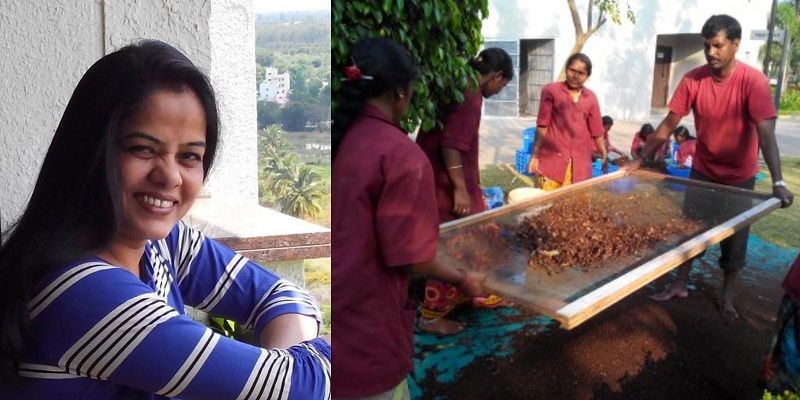When one Bengaluru woman’s battle changed how her apartment complex manages waste
Fighting for a better Bengaluru and rooting for a permanent solution for the garbage crisis that plagues the entire city, Savita Hiremath is working towards making composting and segregation an everyday affair.
The garbage mismanagement witnessed in 2012 became a triggering point for various apartment complexes in Bengaluru to invest in a permanent solution for waste disposal in order to reduce the burden on landfills such as Mandur and Mavallipura.
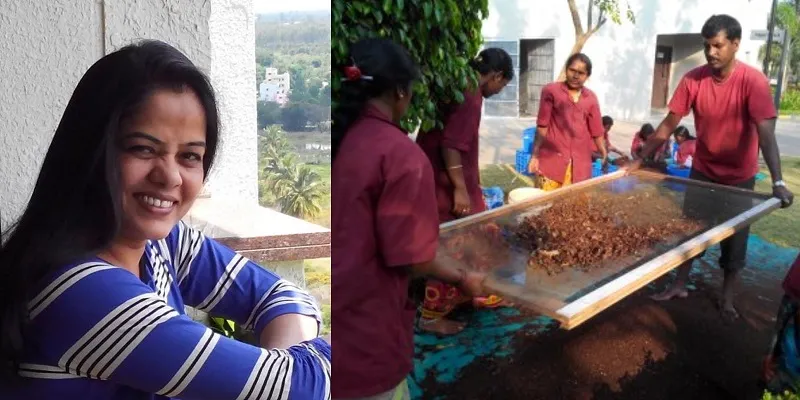
Working to make the environment endlessly green
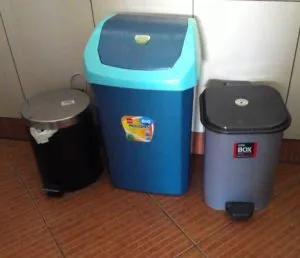
In her quest to adopt a better waste management system for her own home and her apartment complex Sobha Althea comprising 202 flats, 41-year-old Savita Hiremath started experimenting with various green initiatives and documented her journey and 16 months of research on her blog, Endlessly Green. By following the three-bin segregation method and developing an in-house composting unit managed entirely by residents and housekeepers, Sobha Althea has become a role model for reducing waste at source.
The apartment has been successful in recycling and utilising approximately 95 percent of its waste and they send not more than 1kg of waste per day to landfills. Citing an example, Savita, a waste management activist and blogger, says that the residents use paper linings, which are recyclable, instead of garbage bags in their dustbins. As a result, within just a few months, the apartment has managed to keep close to one lakh plastic bags away from the landfill.
Waste is just the beginning. When we start to address this problem, many other problems solve themselves. Segregation, composting, and recycling have enabled the community to not only use the generated compost for their own gardening needs but have also helped them increase soil fertility and reduce air and water pollution.
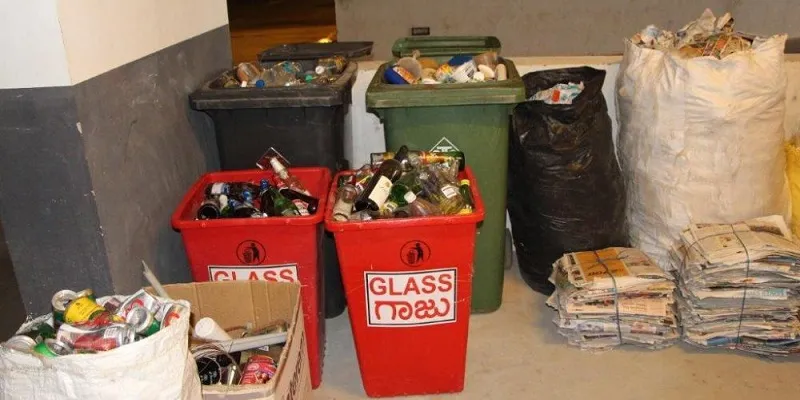
Tangible benefits exceed cost of composting
While the cost will never go beyond Rs 100 per apartment per month, Savita feels that an actual cost-benefit ratio of composting and segregation is difficult to calculate. The tangible benefits of composting go beyond economics — the compost generated can be used in gardens or be sold to those who have boutique gardens.
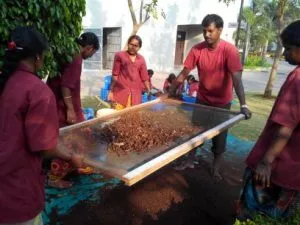
Further, due to the usage of organic manure in gardening and the decreased use of pesticides and synthetic fertilisers, there is a reduction in water consumption. The payment given to the municipal and private garbage contractor also goes down, Savita elaborates.
“So when you do cost calculation, residents have to pick between two options — whether they will put a little more effort and give space for composting and finish the work within the community or wait for the Bruhat Bengaluru Mahanagara Palike (BBMP) contractor.”
Savita believes that blaming the government alone will not solve this garbage menace. There is a need for complete decentralisation and each individual home must practise segregation, if not composting. The laws pertaining to mandatory waste management practices by large apartment complexes need to have “more teeth” and the government needs to bring in ward-level composting units.
For a better tomorrow, garbage woes need to be addressed
Metro cities today are the largest waste generators and Bengaluru alone produces close to 4,200 tonnes of garbage daily. Recently, the Bangalore Development Authority (BDA) estimated that by 2031, the city will generate an alarming 18,390 tonnes of garbage per day. Savita is not surprised by this figure and says,
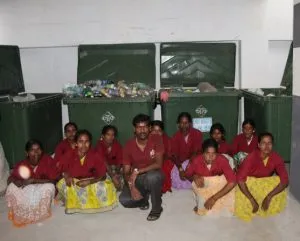
“The only solution to this problem is a consistent citizen-driven movement. Currently, many things to do with waste management, segregation, and sanitary waste disposal have been largely driven by women, and this needs to continue for a few more years, if not a decade, because the idea of managing one’s own waste, composting it, and sending all the recyclables for recycling is yet to get completely institutionalised.”
While the government-led Swachh Bharat Abhiyan started with a lot of fanfare, its manifesto failed to address the main issue — reduction of waste at source. The problem has to end where it started, Savita explains. Kitchen waste comprises almost 60–65 percent of total waste generated by a household, hence, management of waste at a residential level becomes a priority.
“We have so many health problems today which hit us like thunderbolts. Where have we gone wrong?” she questions.
Every individual, knowingly or unknowingly, has contributed to the chaos witnessed in their surroundings. With an aim to leave a better environment for the next generation, Savita vows to continue her fight against garbage and hopes to include many more citizens in her army.
Savita believes, “Collectively, we can fight and build a better tomorrow so that our children will be proud of us.”






